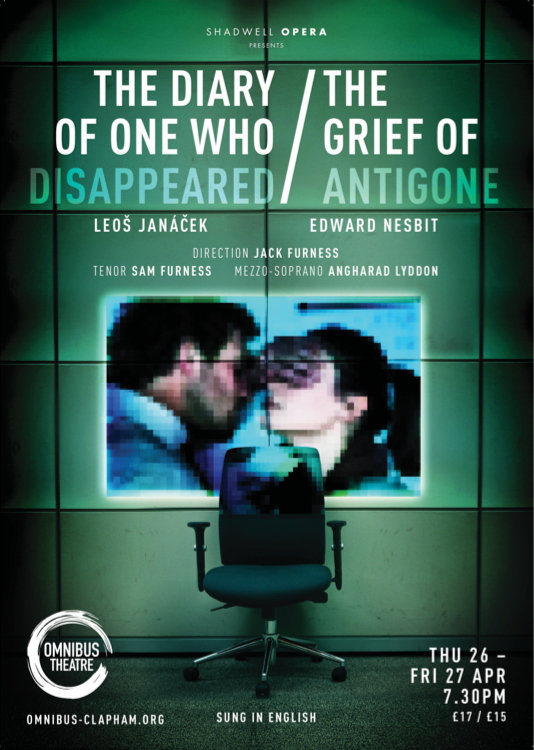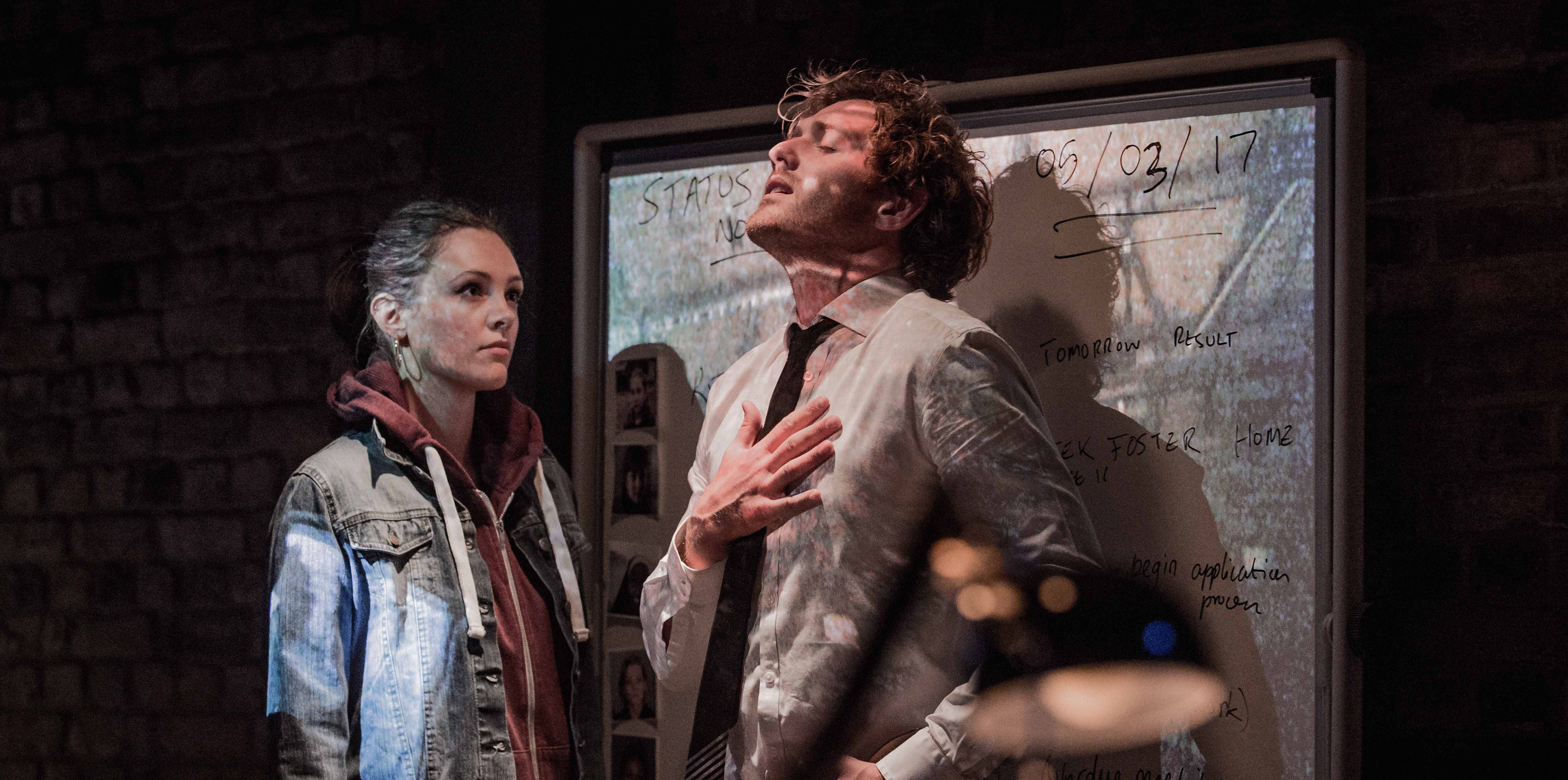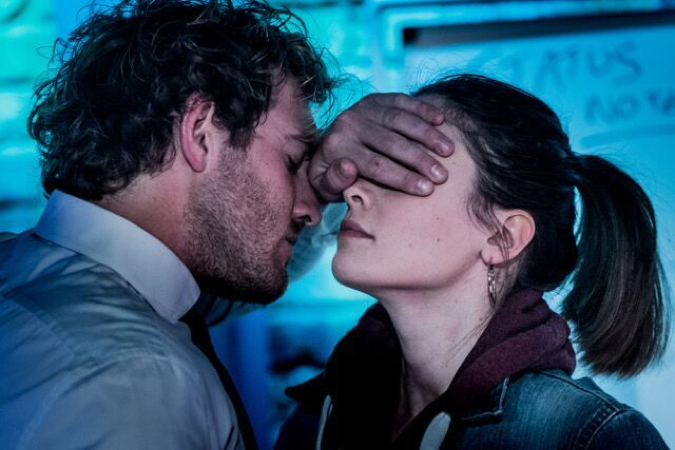Shadwell Opera is a bit of a family affair. Brothers Jack Furness (Artistic Director) and Sam Furness (Tenor Soloist) are key players in the award-winning, critically acclaimed company. We sat down with the two of them to ask our most burning questions ahead of their two-night run, Shadwell Opera Double Bill, at Omnibus next month.
OMNIBUS THEATRE: Where did Shadwell Opera start and what was your overall aim with this style of opera?
JACK FURNESS: Shadwell Opera started when I was a student at Cambridge in 2009. We were part of a big wave of smaller companies rethinking how opera could be done, particularly in terms of scale, context, and price. Our theory was, if you bring operas into interesting venues, sing them in English and put the audience right up close to the action, you have an offer that will attract younger and more diverse audiences. A lot of these insights have now been taken on board by the bigger companies, so the mission of the company has developed as the industry has changed. Now we focus on performing stuff written within the last one hundred years and often the last fifty. Our approach has become rougher, more daring, I think. But at the heart of what we do is still a complete commitment to the intensity of live operatic performance, experienced overwhelmingly, for a ticket price that won’t break the bank.
 “At the heart of what we do is a complete commitment to the intensity of live operatic performance…for a ticket price that won’t break the bank.”
“At the heart of what we do is a complete commitment to the intensity of live operatic performance…for a ticket price that won’t break the bank.”
OT: What was one of your first operas you both collaborated on? Since starting the opera in 2014, how much has changed in terms of your directing and collaborating?
JF: The first opera Sam and I collaborated on was The Magic Flute, which we took to Rosslyn Chapel south of Edinburgh as part of the Edinburgh Fringe. The show was a huge success and won us a Herald Angel Award. I think it was the moment when a lot of us thought “Oh! Maybe I can do this for real!” It’s an interesting question how things have changed working together because that first time, both of us were still finding our way in terms of what we were meant to be doing to some extent. Now obviously we’re a lot more professionalised in terms of our approach. We know more tricks of the trade! But getting back into this, my overwhelming feeling was how familiar it all was. At the end of the day, we’re brothers and that’s the dominant mode of our relationship. We could be working on almost anything together and I think we’d still relate in the same way.
OT: Jack, can you describe your creative process? You have regularly worked with more traditional operas including; Don Giovani, Madam Butterfly. How much does this process differ to a more contemporary genre of opera?
JF: This is possibly the hardest thing to talk about! Ultimately it’s always a case of obsessively listening to the music until every single tiny bit of it is firmly lodged in my head. I have to know all of it, inside out. Often I find clues to things in the tiniest details in the musical score. Then a whole lot of reading. This can be about the opera itself but often it’s about reading down a particular track or line of enquiry, and this can take me into completely different worlds from where I started. Then, generally, I sleep! Often I’ll wake up at 3am and the work has been done; I know what’s important.
 “The space is not only macabre and strange – it’s also beautiful.”
“The space is not only macabre and strange – it’s also beautiful.”
Alongside this I’ll often be working with a designer to work out how to realise the ideas on the stage. I don’t think there’s a fundamental difference between staging something like Don Giovanni or something more contemporary, at least in terms of the techniques you use, or the way you get to your answers. The differences are really to do with expectation. With a well-known piece, the audience have certain expectations, and a good production should engage with those expectations whilst telling the story. With newer pieces most people are coming in cold, so you have to create expectations within the structure of the performance itself. It’s a subtle difference but has wide ranging implications. Even when I work on an old piece though, I try to imagine I’m the first person to direct it, and that the audience don’t know it. Or I imagine that at the same time as knowing what I know – which is that many of them do know it, and others have directed it. But trying to keep a fresh view of it is crucial. Many of these older pieces have a whole tradition of performance built up around them. Sometimes that’s a good thing but often it actually inhibits performers or audiences engaging with the piece itself. Lots of people think they know what happens in the Mozart operas, for example, and who the characters are, but really what they know is the traditions that have grown up around it. I think my job is to strip away some of that and get back to the piece itself.
 “At the end of the day, we’re brothers.”
“At the end of the day, we’re brothers.”
OT: Sam, you have taken on such a wide range of roles during your career. Which ones have you enjoyed doing the most/which have been the most challenging?
SAM FURNESS: I recently made my role debut as don José in Carmen which I would say was both the most challenging and most rewarding role I have done to this point. It is always enjoyable as an actor to have a real journey to make through a piece and the more your character and his situation changes through a story, the more enjoyable it is to play. Of course the music one has to sing is just as crucial as the character and for me, as for many singers, romantic operas tend to give the best opportunities to show the full pallet of vocal colours available to me.
OT: On your website you describe working in ‘venues expected and unexpected’ which is the most unexpected venue you have performed in?
JF: That has to be St Bart’s Pathology Museum! It’s this extraordinary space in East London, filled with different body specimens in glass jars all up the walls. We did Peter Maxwell Davies’ 8 songs for a mad king there, and also had a themed life drawing session. It was a really extraordinary event and captured a lot of people’s imaginations. The space is not only macabre and strange – it’s also beautiful.
Catch Shadwell Opera Double Bill at Omnibus Theatre from 26 – 27 April – grab your tickets HERE



